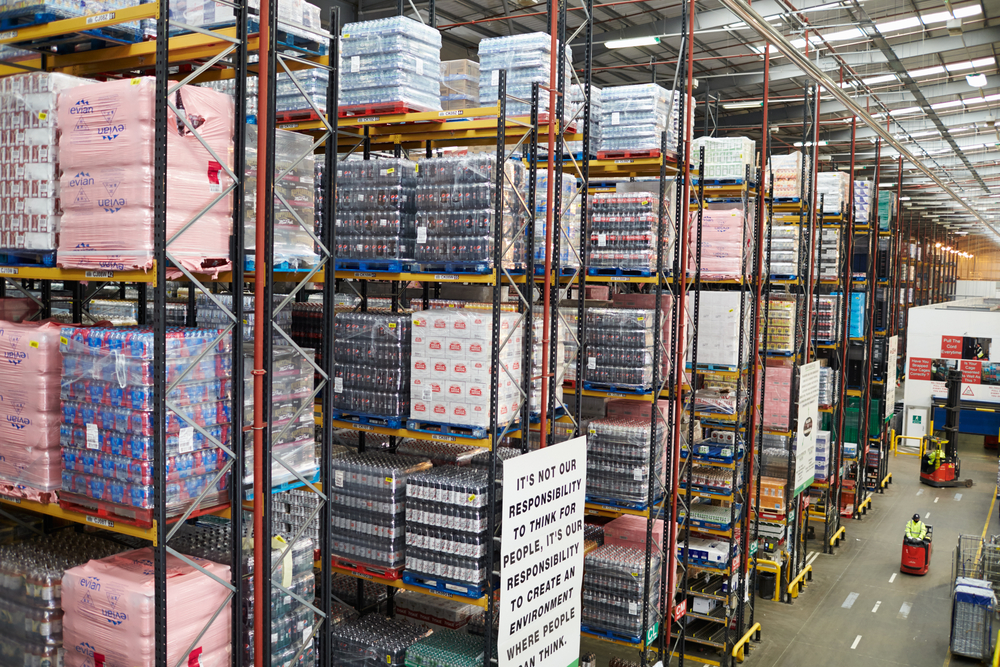
E-commerce is the commercial transaction of goods conducted electronically via the internet. Typically done between a consumer and a business, customers are acquired online via a website or online marketplace to purchase goods. Despite operating online, e-commerce businesses still face many challenges in their day-to-day operations, which a 3PL is key at solving.
What are the different types of e-commerce businesses?
There are six types of eCommerce businesses:
- Business to Consumer (B2C)
- Business to Business (B2B)
- Business to Government (B2G)
- Business to Business to Consumer (B2B2C)
- Consumer to Consumer (C2C)
- Consumer to Business (C2B)
However, the most common types are B2C and B2B.
What is the role of shipping and logistics in e-commerce?
Shipping and logistics in e-commerce enable the seller to get their deliveries to and from the customer. Without it, there would be no possible way to get deliveries to customers.
Alongside the delivery of goods, customer service, cost efficiency, and product management are a few other benefits of shipping and logistics in e-commerce.
What are the challenges that e-commerce businesses face in managing shipping and logistics?
E-commerce businesses may face several challenges when it comes to shopping and logistics. All of these challenges can be time and money-consuming when an e-commerce business takes on shipping and logistics themselves. Some common challenges are:
Shipping costs
For an independent business working alone, shipping costs can become pricey, especially sending oversized or international orders. This is because generally, shipping favours smaller and lower quantities of items, increasing that outbound number and the complexity of the order usually incurs higher fees associated with sending the order.
Returns
Returns are much more difficult to manage in a smaller e-commerce business. This is due to the coordination and shipping needed to get a shipment back to its original sender.
Order Tracking
Without the use of expensive technology and other software, offering real-time order tracking can be nearly impossible, and most postal companies charge more to offer tracking services.
Scalability
Scalability can be a huge issue with any e-commerce business, as a company grows, the resources available to them also need to grow. This can be difficult to manage with smaller businesses as room and production methods can be quickly outgrown if demand increases.
Storage
Lastly, product storage can be a huge challenge for smaller to medium size e-commerce businesses. Renting a space in a warehouse can quickly become costly if minimum orders are not met, or if demand grows and they can not scale with you.
3PLs And E-commerce
A 3PL can offer many services to many different types of e-commerce businesses mentioned earlier. All of these services can be tailored to the business and its market.
Fulfillment Services:
A 3PL can handle order fulfillment for the e-commerce business. This typically includes receiving orders, picking, packing, and shipping products. This service is especially helpful for small to medium-sized e-commerce businesses that don’t have the resources to manage their warehousing and shipping.
Inventory Management:
A 3PL provider will also manage inventory levels, monitor stock, and track shipments to ensure that products are available when customers place orders. This helps e-commerce businesses avoid shortages and also reduces the risk of overstocking.
Shipping and Delivery:
3PL provider can often use their connections and experience to negotiate better shipping rates, acquire better carriers, and on-time delivery. This helps e-commerce businesses reduce their shipping costs and in turn, improve customer satisfaction.
Returns Management:
One of the major challenges e-commerce businesses can face is the processing of returns. A 3PL provider can help manage returns, this includes processing returns, restocking products, and issuing refunds. This helps e-commerce businesses streamline their returns process which can improve customer service.
Technology and Integration:
Many 3PL providers have new and expensive technologies that many small businesses are not able to afford by themselves. Companies that work with a 3PL gain access to this technology and can integrate with e-commerce platforms which provide technology solutions such as inventory management software, order tracking, and real-time reporting.
Benefits of working with 3PLs for e-commerce shipping and logistics
Working with a 3PL as an e-commerce business allows your company to grow and provide better services to your customers. Below are more advantages to working with a 3PL
Cost savings:
Outsourcing shipping and logistics to a 3PL provider will help e-commerce businesses save on the costs of warehousing, transportation, and labour.
Access to expertise:
As 3PL providers specialize in logistics, they can offer expert knowledge and support which help e-commerce businesses improve their supply chain management.
Scalability:
As e-commerce businesses grow, the associated logistics needs become more complex. 3PL providers will help them scale their logistics operations to meet the demands of their business.
Technology
Most 3PL providers can offer e-commerce businesses access to their advanced logistics technology. These usually include real-time tracking and inventory management systems, both of which can help businesses optimize their supply chain management.
Optimize Your E-commerce business with our 3PL Services
At Birkby, we offer state-of-the-art technology, flexibility, and over 100 years in the industry. Partner with us today to see how we can elevate your business.
Looking for a 3PL Provider?
Contact us today to learn more about Birkby’s comprehensive 3PL solutions.





Leave a Comment